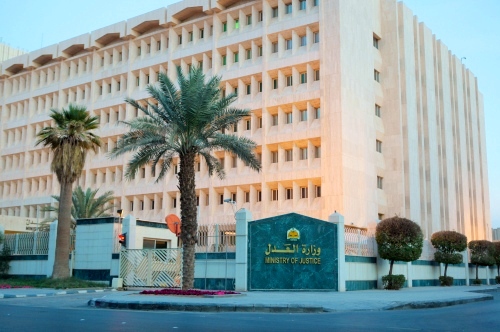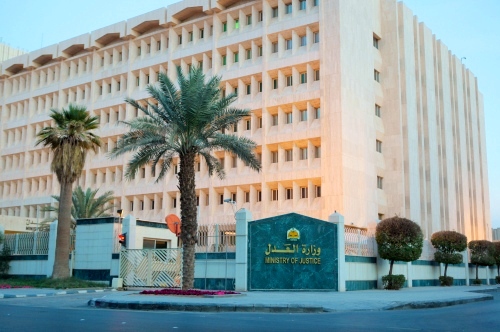Labor courts issue 42 thousand judgments … and resolve the case within 23 days
Labor courts issue 42 thousand judgments … and resolve the case within 23 days

The labor courts crowned its first year with many achievements, which reflected positively on the business and investment environment in the Kingdom.
The Ministry of Justice announced that labor courts issued more than 42 thousand rulings since its inception in Rabi` al-Awwal 1440 AH, in addition to holding more than 170 thousand sessions.
The labor courts have achieved distinguished rates in the closing times of the case, with the average length of time to close cases in the first degree being 23 days.
The labor courts were equipped with the latest electronic systems, through which they achieved advanced stages of digital transformation of the entire procedures of litigation, which contributed to the improvement of judicial outputs, and the reduction of the duration of cases closed.
With the commencement of work by the labor courts, the first degree courts contract is completed and the judicial system is completed according to the judicial system issued by Royal Decree No. (M / 78) dated 19 Ramadan 1428 AH.
His Excellency, Minister of Justice and Chairman of the Supreme Judicial Council, Sheikh Dr. Walid bin Muhammad Al-Samani, had launched the work of the labor courts last year, and the first phase witnessed the opening of seven courts in (Riyadh, Makkah Al-Mukarramah, Jeddah, Abha, Dammam, Buraidah and Madinah), in addition to 27 labor departments in the cities and governorates of the Kingdom, and nine labor departments to appeal in six courts of appeal in different regions of the Kingdom.
The importance of the labor judiciary is evident from the Kingdom’s care and keenness to develop and improve the investment and business sector, and to qualify the work environment; to be attractive, distinct and safe, and by the efficiency of the labor judiciary, stability for workers in the investment and business sector is achieved.
The Ministry of Justice indicated that there are six types of lawsuits and rulings issued by labor courts that cannot be appealed against through appeal, which are called “soft” cases.
These cases are represented in labor cases in which the value of the claim does not exceed 20 thousand riyals, demanding a service certificate, claiming documents and documents related to the worker and deposited with the employer, objecting to the penalty that the employer imposes on the worker except for dismissal from work, objecting to the decisions of worker committees Domestic service and those similar to them, grievance cases by employers and workers whose objections were not accepted against any decision issued by a competent body in the General Organization for Social Insurance if the lawsuit relates to the necessity of registration, contributions or compensation in a number not exceeding 20 thousand riyals.
It should be mentioned that His Excellency the Minister of Justice and the President of the Supreme Judicial Council confirmed the ministry’s keenness that the environment for the workers ’judiciary be a fully digital environment to be based and a role model for the rest of the districts, noting that the selection of judges assigned to workers’ judiciary from the Supreme Judicial Council came in accordance with precise criteria based on Judicial and scientific competence necessary, taking into account judicial experience.
The Ministry of Justice confirmed that the regulations applied before labor courts have set specific time limits for accepting claims to claim rights, including in relation to lawsuits related to the work or domestic employment system, which are subject to specific periods of amicable settlement before judicial consideration, in addition to complaints against the Public Institution for Social Security in connection with participation Registration and compensation.
As for the period of friendly settlement procedures before filing cases subject to the labor system to the labor courts, it is 21 days, and if the friendly settlement does not end within that period, the dispute is submitted to the labor courts electronically through the Ministry of Labor and Social Development.






